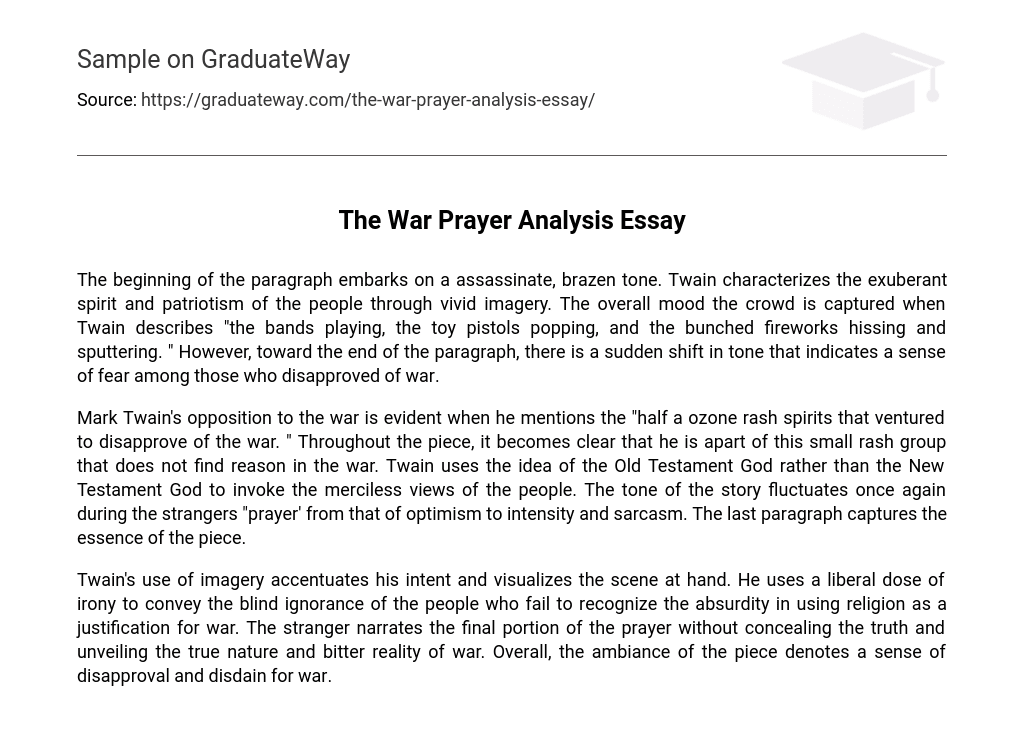The beginning of the paragraph embarks on a assassinate, brazen tone. Twain characterizes the exuberant spirit and patriotism of the people through vivid imagery. The overall mood the crowd is captured when Twain describes “the bands playing, the toy pistols popping, and the bunched fireworks hissing and sputtering. ” However, toward the end of the paragraph, there is a sudden shift in tone that indicates a sense of fear among those who disapproved of war.
Mark Twain’s opposition to the war is evident when he mentions the “half a ozone rash spirits that ventured to disapprove of the war. ” Throughout the piece, it becomes clear that he is apart of this small rash group that does not find reason in the war. Twain uses the idea of the Old Testament God rather than the New Testament God to invoke the merciless views of the people. The tone of the story fluctuates once again during the strangers “prayer’ from that of optimism to intensity and sarcasm. The last paragraph captures the essence of the piece.
Twain’s use of imagery accentuates his intent and visualizes the scene at hand. He uses a liberal dose of irony to convey the blind ignorance of the people who fail to recognize the absurdity in using religion as a justification for war. The stranger narrates the final portion of the prayer without concealing the truth and unveiling the true nature and bitter reality of war. Overall, the ambiance of the piece denotes a sense of disapproval and disdain for war.





